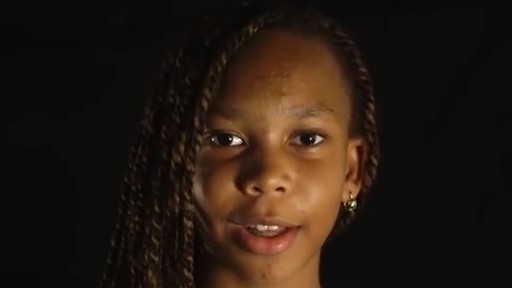1.1 The United Nations Convention on the Rights of the Child (UNCRC)
The UNCRC is the most important international children’s rights convention and is central to understanding contemporary childhoods. Children’s rights are part of broader human rights legislation but the UNCRC emphasises that as well as the same rights all children have as human beings, they have additional rights to special protections and provisions because of their age and developing capabilities.
To help introduce the UNCRC, watch the video below which provides a useful summary of the rights all children are entitled to.

Transcript: Video 1
[MUSIC PLAYING]
Now complete Activity 1.
Activity 1
a.
True
b.
False
The correct answer is a.
a.
True
b.
False
The correct answer is b.
Discussion
You will look in more detail as to why the answer to this question is no in Part 2 of this activity.
a.
True
b.
False
The correct answer is a.
a.
True
b.
False
The correct answer is b.
Discussion
You will look in more detail as to why the answer to this question is no in Part 2 of this activity.
a.
True
b.
False
The correct answer is a.
a.
True
b.
False
The correct answer is a.
a.
True
b.
False
The correct answer is a.
a.
True
b.
False
The correct answer is b.
Discussion
You will look in more detail as to why the answer to this question is no in Part 2 of this activity.
a.
True
b.
False
The correct answer is b.
Discussion
You will look in more detail as to why the answer to this question is no in Part 2 of this activity.
Part 2
Now you have completed Part 1 of this activity, write a sentence on why you think the UNCRC does not set out unequivocally children’s right to be happy.
Discussion
The UNCRC is an official document that sets out legally enforceable standards. It is important to distinguish this set of legal standards with the sometimes loose way that the phrase ‘children’s rights’ is used to refer, for instance, to a child’s ‘right to a childhood’ or to loving parents.
There is an important difference between ‘rights’ and ‘wants’ and it is essential to differentiate between the desire for children’s well-being and the legal responsibility to enforce this. It is possible to say, for example, that a child has a right to the best possible standard of living given the circumstances they live in, but it is not meaningful to say a child has a right to a happy childhood, no matter how desirable this might be. As lawyer Jack Donnelly (2003, pp. 10–11) argues:
We do not have human rights to all things that are good, or even all important good things. For example, we are not entitled – do not have (human) rights – to love, charity or compassion. Parents who abuse the trust of children wreak havoc with millions of lives every day. We do not, however, have a human right to loving, supportive parents. In fact, to recognize such a right would transform family relations in ways that many people would find unappealing or even destructive.
The fundamental principle behind the UNCRC is stated in Article 3, which reads:
In all actions concerning children … the best interests of the child shall be a primary consideration
(Unicef, no date)
However, when drafting the Convention its authors were very careful not to set up rights to something that is legally meaningless. The preamble to the UNCRC states an ideal and recognises that in a perfect world all children would grow up in ‘an atmosphere of happiness, love and understanding’ but that this is not, and never can be, a legally enforceable standard and no government or organisation can ensure that children are happy.
Although it is desirable to want children to be happy, have good friends and be loved by their parents, there is no right to any of these things. Next you’ll look at the principles behind the UNCRC in more detail.
